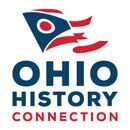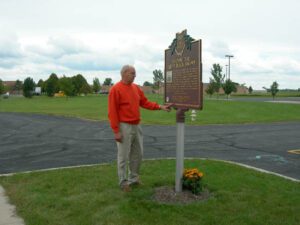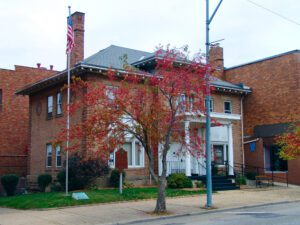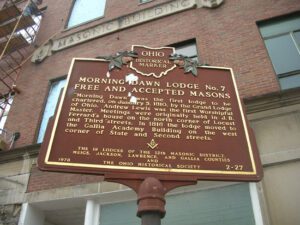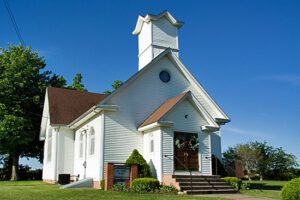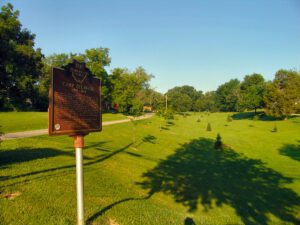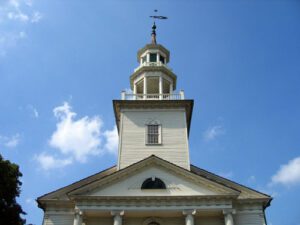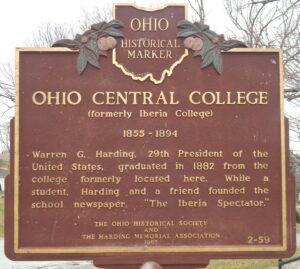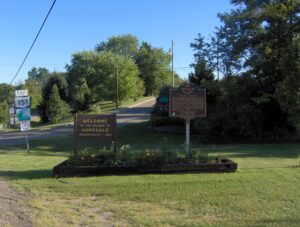, OH
The landscape of northwest Ohio was formed by melting ice and the glacial lakes left behind in its wake. Because of the low gradient (3 feet fall per mile) to the northeast, the flat lacustrine plain evolved into a large swamp. A massive swamp forest with huge hardwoods, broken only sporadically with intermittent wet prairies and savannahs, dominated the landscape. Both prehistoric and historic Indians farmed the flood plains of the Maumee River and its tributaries: Auglaize, Tiffin, and Blanchard rivers. (continued on other side)
, OH
The first Scottish Rite body of Free Masonry west of the Alleghenies was formed in Cambridge, Ohio, in 1852 by Killian H. Van Rensselaer, an honorary 33rd Degree Mason. He lived in this city from 1851 to 1867. Van Rensselaer was superintendent of construction of the present railroad tunnel west of Cambridge. He died in Cincinnati in 1881 at the age of 80.
, OH
Morning Dawn was the first lodge to be chartered, on January 5, 1810, by the Grand Lodge of Ohio. Andrew Lewis was the first Worshipful Master. Meetings were originally held in J. B. Ferrard’s house on the north corner of Locust and Third Streets. In 1816 the lodge moved to the Gallia Academy building on the west corner of State and Second streets. [Masonic Emblem]
, OH
The Israel Evangelical Lutheran Church was organized August 23, 1812. According to available records, in 1813 the first meeting in Ohio of the “Special Conferences” called by the Lutheran Ministerium of Pennsylvania was held at the church. Pioneer Lutheran pastors, the Reverends Heineke, Henkle, Huet, and Jacob Leist, met to further organize the Christian Witness on the Ohio frontier.
, OH
Near this site, the Union army established two camps on either side of the Olentangy River during the Civil War. Both were known as Camp Delaware. The first camp, situated on the west side of the river in the summer of 1862, was where the white recruits of the 96th and 121st regiments of Ohio Volunteer Infantry were mustered into service. A second camp, on the east side of the Olentangy, was established in the summer of 1863 and became the rendezvous point for most African-American Ohioans joining the army. The 127th Regiment of Ohio Volunteer Infantry-later renamed the 5th Regiment United States Colored Troops, the 27th U.S. Colored Troops, and members of other African-American units were mustered into service at Camp Delaware.
, OH
Tallmadge was established in 1807 by David Bacon as a Congregational community. In 1821 local landowners donated timber to build this church, designed and constructed by one of Ohio’s first architects, Col. Lemuel Porter. Dedicated on September 8, 1825, the structure is considered to be a perfect example of the pure Connecticut-type of Federal architecture. It is the oldest Ohio church to be continuously occupied as a place of worship.
, OH
Ohio Central College (formerly Iberia College). Warren G. Harding, 29th president of the United States, graduated in 1882 from the college formerly located here. While a student, Harding and a friend founded the school newspaper, “The Iberia Spectator.”
, OH
Platted by educator and abolitionist Cyrus McNeely in 1849, Hopedale was the site of McNeely Normal School, later Hopedale Normal College, the first coeducational college for teachers in eastern Ohio. It operated from 1849 to 1902. Among its graduates was George Armstrong Custer in 1856. Hopedale served as an important stop on the Underground Railroad for slaves fleeing bondage in the southern states. Local tradition notes several “stations” in the village, three at private homes and one at a hotel.

